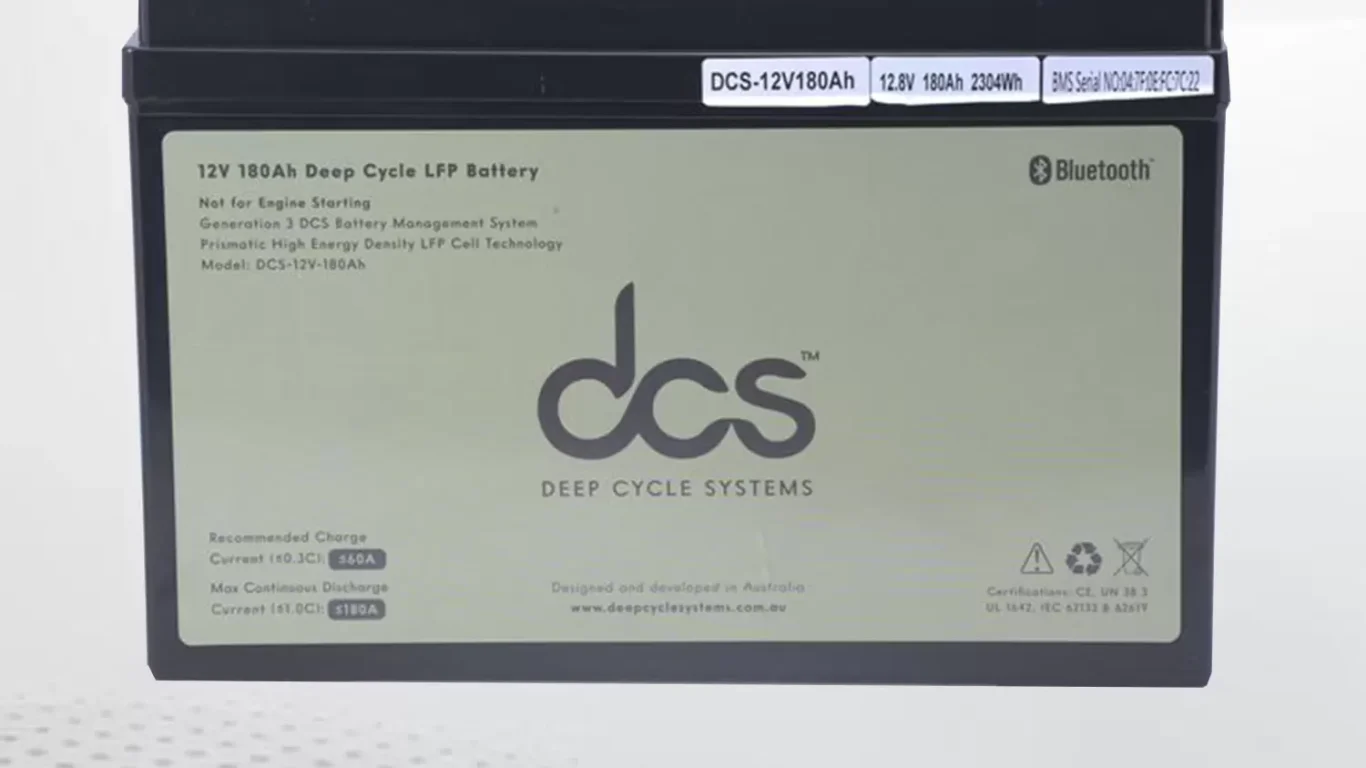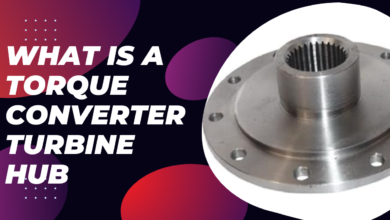The Efficiency Boost of Using 48v Lithium Ion Battery 200Ah

Are you tired of constantly replacing your batteries or dealing with short battery life? Look no further than the 48v lithium-ion battery 200Ah. This powerful and efficient battery is revolutionizing the way they use and store energy. With a voltage of 48v and a capacity of 200Ah, this battery provides an impressive amount of energy to power a variety of devices and appliances. Whether you’re looking to upgrade your electric car, solar power system, or industrial equipment, the 48v Lithium Ion Battery 200ah offers a significant efficiency boost compared to traditional lead-acid batteries.
Understanding the 48v Lithium Ion-Battery 200Ah
Delving into the specifics of the 48v lithium-ion battery 200Ah unveils its standing as a forefront energy storage solution. This battery configuration is distinguished by its substantial 200Ah capacity, delivered at a voltage of 48v, making it an exceptional option for applications demanding robust and enduring power sources. It’s celebrated for facilitating long-cycle lives, which is a testament to its durability and the cost-efficiency it offers over time.
The design of this battery emphasizes not just capacity but also a lightweight structure, which enhances its usability across various platforms without adding unnecessary bulk. Furthermore, its capability for rapid charging emerges as a pivotal feature, significantly reducing downtime and improving the operational efficiency of the devices and systems it powers.
The Compact Power of the 48v 50Ah Lithium Ion Battery
Exploring the capabilities of the 48v 50ah Lithium Ion Battery unveils its unique position within the energy storage hierarchy. This variant, though offering a lower capacity than its 200Ah counterpart, stands out for its exceptional energy density. Such a characteristic renders it particularly suitable for scenarios where space constraints are paramount yet efficiency cannot be compromised.
The essence of this battery lies in its adeptness at bridging the gap between size and performance. It ensures that devices and systems requiring a moderate level of energy storage do not have to contend with the bulk typically associated with higher-capacity batteries. This makes it an invaluable asset for applications such as smaller electric vehicles, portable power stations, and various electronic gadgets that demand a blend of mobility and endurance.
Its construction is also a testament to the advances in lithium-ion technology, encapsulating high efficiency in energy conversion and storage within a reduced footprint. Despite its modest size, it is capable of delivering sustained power output, highlighting its role as a versatile energy solution. Notably, this battery variant retains the advantageous attributes of lithium-ion cells, including a commendable life cycle and minimal maintenance requirements, without imposing the spatial demands of larger units.
Comparing the Capacities: 200Ah vs. 50Ah vs. 30Ah
Selecting the correct battery capacity is pivotal to matching energy requirements with application needs, ensuring both efficiency and effectiveness. The 48v lithium-ion battery with a 200Ah capacity stands as the titan among its counterparts, ideally suited to applications necessitating a continuous and robust power supply, such as renewable energy systems and heavy-duty electric vehicles.
Conversely, the 48v 50Ah variant, while lesser in capacity, shines in contexts where spatial constraints are significant yet a compromise on power is untenable. Its reduced footprint makes it an optimal choice for medium-sized applications, including lightweight electric vehicles and portable power units, where efficiency and compactness must coexist harmoniously.
The smallest, the 48v 30Ah battery, excels in ultra-compact scenarios, providing a dependable power source for applications where space is at a premium, including small portable devices and certain electric bicycles. Despite its modest size, it doesn’t falter in delivering reliable performance, making it a testament to the versatility offered by lithium-ion technology across different scales of energy needs.
The Versatility of the 48v 30Ah Lithium Ion Battery
The 48v 30ah Lithium Ion Battery exemplifies the seamless blend of compact design with dependable power output, earmarking it as an exemplary choice for myriad applications where space is constrained yet efficiency is paramount. This iteration of lithium-ion battery is particularly adept for use in lightweight electric bicycles, portable gadgets, and other scenarios necessitating a nimble yet robust energy source.
Its diminutive size belies the strength it brings to power solutions, allowing for an unobtrusive integration into systems where the balance between physical footprint and performance is critical. The architecture of this battery leverages the advanced capabilities of lithium-ion technology, ensuring that despite its smaller capacity, there is no compromise on the energy delivery and cycle life it offers.
It embodies the versatility required in today’s technologically diverse landscape, enabling a wide spectrum of devices to operate with efficacy and reliability. Its deployment across various sectors underscores the adaptability of lithium-ion batteries, demonstrating that size does not detract from the substantial impact these power sources can have in enhancing operational efficiency.
The Advantages of Lithium Ion Technology in Batteries
Lithium-ion technology stands at the forefront of battery evolution, championing unparalleled merits that extend beyond mere energy storage. These batteries are heralded for their superior energy density, a trait that allows for greater power capacity within a relatively smaller physical footprint. This aspect is particularly advantageous in applications where space and weight are critical considerations, such as in portable electronic devices or electric vehicles.
Moreover, lithium-ion batteries boast a significant advantage in terms of cycle life. They are capable of enduring thousands of charge-discharge cycles with minimal degradation, ensuring a prolonged operational lifespan that outstrips many alternative energy storage solutions.
Another notable benefit lies in their rapid charging capability, a feature that mitigates downtime and enhances productivity in numerous contexts, from daily consumer electronics use to the rigorous demands of industrial operations. These attributes, coupled with the environmental advantage of being free from heavy metals and offering a lower discharge rate, underscore the transformative impact of lithium-ion technology in propelling the battery industry forward.
Application Scenarios for High-Capacity Lithium Ion Batteries
The versatility of high-capacity lithium-ion batteries, particularly the 48v lithium-ion battery 200Ah, is showcased across a multitude of sectors, fundamentally altering the dynamics of energy consumption and storage. These batteries serve as the backbone for renewable energy systems, where their ability to store large amounts of power harvested from solar panels or wind turbines enables a consistent energy supply, even in the absence of direct sunlight or wind.
In the realm of electric vehicles, these batteries provide the necessary endurance and reliability to support longer travel ranges without frequent recharges, making electric mobility more accessible and practical. Backup power systems also benefit immensely from these high-capacity units, ensuring critical systems remain operational during power outages.
Furthermore, they find application in large-scale portable power solutions, offering substantial energy reserves for off-grid adventures or emergencies. Their adoption in these varied scenarios underscores the pivotal role they play in advancing sustainable energy solutions, highlighting their contribution to a more energy-efficient future.
Maintenance and Safety Tips for 48v Lithium Ion Batteries
Ensuring the durability and safe operation of 48v lithium-ion batteries, such as the 200Ah model, necessitates adherence to specific maintenance and safety protocols. It is vital to conduct periodic checks on the battery to identify any signs of wear or damage that could impede its performance or pose safety hazards. Keeping the battery clean, and free from dirt and debris, and ensuring its terminals remain corrosion-free are essential steps in preserving its condition and functionality.
One must be vigilant about the environment in which the battery is stored and used. Operating or storing the battery in extreme temperatures can significantly affect its efficiency and lifespan. It is recommended to keep the battery in a cool, dry place, away from direct sunlight and moisture, to prevent overheating and reduce the risk of malfunction.
In addition to environmental considerations, it is paramount to utilize a charger that is compatible with the battery’s specifications to avoid overcharging. Overcharging can lead to overheating, which not only reduces the battery’s lifespan but also increases the risk of fire. Following the manufacturer’s guidelines for charging and discharging cycles will help maximize the battery’s operational life and maintain its capacity.
The Future of Energy Storage and 48v Lithium Ion Batteries
The trajectory of energy storage is poised for transformative changes, with 48v lithium-ion batteries playing a pivotal role. Innovations in materials science and battery design are anticipated to enhance the efficiency and capacity of these batteries further, making them even more integral to sustainable energy systems. As we advance, the integration of smart technology into battery systems promises to optimize usage patterns and improve the overall management of energy resources.
This could lead to batteries that not only store energy more effectively but also contributes to the stability of the grid by supplying power during peak demands. Additionally, the environmental impact of battery production and recycling processes is receiving increased attention.
Future developments are expected to focus on reducing the ecological footprint of these batteries, through the use of greener materials and more efficient recycling methods, ensuring that 48v lithium-ion batteries contribute positively to the circular economy. With these advancements, the role of lithium-ion batteries in powering electric vehicles, renewable energy storage, and portable electronics will undoubtedly grow, underpinning the shift towards a more energy-efficient and sustainable future.
Power Up with a 48V Lithium Ion Battery 100Ah
Embracing the realm of efficient energy storage solutions, the 48v lithium-ion battery 100Ah emerges as a noteworthy contender. This variant caters to an array of applications, bridging the gap between extreme high-capacity needs and moderate power requirements. Its adeptness in delivering a substantial energy reserve makes it an excellent choice for a spectrum of devices, from mid-size electric vehicles to robust portable power systems and beyond.
The allure of this battery lies in its ability to provide a dependable source of power whilst maintaining a balance between size and capacity. It’s tailored for those scenarios where the 200Ah might be more than necessary, yet the demand for reliability and longevity remains paramount.
Its integration into systems underscores a commitment to not just meeting but exceeding energy requirements with efficiency and sustainability in mind. The 48v lithium-ion battery 100Ah exemplifies how advancements in battery technology continue to push the boundaries, offering solutions that are both pragmatic and aligned with the shifting dynamics of energy consumption in today’s tech-driven world.
Efficient Charging for 48V Lithium Ion Batteries
Optimizing the charging process is pivotal for enhancing both the operational efficacy and longevity of 48v lithium-ion batteries, such as the 200Ah model. Employing a charger that aligns with the battery’s specific requirements is fundamental to this endeavor. Adherence to the manufacturer’s instructions on charging rates and cycles plays a crucial role in safeguarding the battery’s integrity and performance.
Temperature regulation also emerges as a critical factor; maintaining the battery within its optimal temperature range during charging can prevent damage and ensure consistent performance. By instituting rigorous charging protocols, users can significantly extend the service life of their battery, thereby enhancing the value derived from their investment.
Proper charging techniques not only fortify the battery’s reliability but also contribute to the sustainability of energy resources by optimizing power usage and minimizing waste. Thus, diligent attention to efficient charging practices underpins the effective utilization of 48v lithium-ion batteries, fostering a more sustainable and efficient energy future.
Conclusion
In summarizing the merits and capabilities of 48v Lithium Ion Battery 200ah, particularly the 200Ah variant, it is clear that these advanced energy storage solutions stand at the cusp of revolutionizing multiple industries. From powering electric vehicles to bolstering renewable energy systems, their versatility, efficiency, and sustainability underscore a significant leap toward a greener, more energy-efficient future. The exploration of their capacities, from the robust 200Ah to the more compact 30Ah, reveals a spectrum of applications that cater to a wide array of energy needs, marrying portability with performance. Furthermore, the evolution of lithium-ion technology heralds a future where the ecological footprint of energy storage is minimized, enhancing the environmental benefits.
FAQS
1. What makes 48v 50ah Lithium Ion Battery superior to traditional batteries?
The 48v 50ah Lithium Ion Battery excels due to its high energy density, long cycle life, rapid charging capabilities, and lightweight design. These attributes make it a more efficient and durable option, particularly suited for applications requiring sustained power delivery without frequent replacements.
- Can the 48v 50Ah lithium-ion battery be used in all the same applications as the 200Ah variant?
While both batteries share the same voltage, the 50Ah variant is more suitable for applications with space constraints or those requiring less energy storage capacity. It is ideal for medium-sized devices that demand high energy density without the bulk of higher-capacity batteries.
3. Is the 48v 30Ah lithium-ion battery reliable for long-term use?
Yes, despite its smaller capacity, the 48v 30Ah battery is built to offer reliability and longevity, thanks to lithium-ion technology’s inherent advantages, such as a long cycle life and minimal maintenance needs. It’s particularly advantageous for lightweight and compact applications.
4. How do I maintain my 48v lithium-ion battery to ensure its longevity?
Regular maintenance includes keeping the battery clean, ensuring terminals are corrosion-free, storing it in cool and dry conditions, using a compatible charger, and avoiding exposure to extreme temperatures to prevent efficiency losses and prolong its lifespan.
5. Are there any environmental benefits to using 48v lithium-ion batteries?
Yes, these batteries are free from heavy metals, have a lower discharge rate, and their long life cycle reduces waste. Advancements in recycling processes are further minimizing their environmental impact, aligning with sustainable energy goals.
| Related Business Listings |
| Contact Directory |
| Local Business Profiles |




